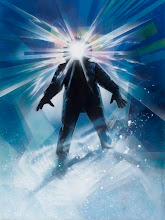
Doctorow, Cory. (2008). Little Brother. New York: Tom Doherty Associates Book. ISBN: 1892391813, p. 382
Genre: Fiction
Interest Age: 14+
Curriculum: Literature
Reader’s Annotation
Marcus, aka “w1n5t0n” is a tech savvy high school kid who uses his technological skills to outwit his principle, teachers, and truant officers. But when he and his friends are suspected of being terrorists after being at the wrong place at the wrong time during a terrorist bombing, Marcus finds that he now must use his skills to outwit an oppressive government.
Plot Summary
Marcus is the tech savvy protagonist in this story of what could easily happen in the aftermath of a devastating terrorist attack. Marcus and his friends are out on the streets of San Francisco, ditching school to play their favorite game Harajuku Fun Madness, when terrorists bomb the Bay Bridge. Marcus and his friends are quickly picked up by the Department of Homeland Security (DHS); they are held without explanation and harshly interrogated. Eventually Marcus is released but returns to a San Francisco which has become a closely monitored police state, with the DHS monitoring everyone’s movements and activities. Worse yet, Marcus’s friend Darryl was never released and for all intents and purposes has been completely “disappeared” by the DHS.
Marcus must now use all of his skills to thwart the Orwellian police state that is slowly destroying all of the freedoms that Americans hold sacred. As the mischief Marcus started for personal reasons slowly builds into a full-fledged social movement, Marcus must struggle with becoming a leader of a powerful underground movement while avoiding being captured by the government who has labeled him a traitor and a terrorist.
Critical Review
Cory Doctorow creates a terrifying vision of the future where, due to the fear of terrorism, San Francisco gladly turns over its freedom and becomes an Orwellian police state in the name of “security”. Much of what Doctorow describes in Little Brother already exists: DHS, The Patriot Act, acts of rendition, torture in the name of security, censorship, and electronic surveillance all are present in today’s world. Doctorow simply pushes these to the next logical step by asking, “What if there was another successful, large scale terrorist attack on American soil?” How much freedom and privacy would the American people sacrifice in order to feel safe? What is most disturbing about Doctorow’s premise and story narrative is that it feels all too possible.
Along with harsh socio-political critique, Doctorow also blends themes of civil disobedience as well as youth, social and anti-war movements. These themes are sometimes addressed in a very on the nose style; it is not challenging to decipher Doctorow’s own views. However, Doctorow blends his commentary with enough action, and a bit of humor, so as to not let the book become preachy and didactic. In fact, despite the very serious underlying tone and message of the story, Little Brother is a fast and furious read, loaded with cat and mouse chases, narrow escapes, and enough techno-speak to make the reader feel like a genius or a complete dullard, depending on how much you understand about computers, programming, and technology. For example, Xboxes and cell phones play central roles in the fight against the growing authoritarian dictatorship.
Doctorow has created a piece of fiction that fits comfortably next to dystopian classics like 1984, Brave New World, and Fahrenheit 451.
Author Info
Cory Doctorow is a writer, blogger, and social activist based out of Ontario, Canada. Doctorow is the author of nonfiction, works dealing with technology like Essential Blogging: Selecting and Using Weblog Tools as well as numerous technology articles for periodicals such as Wired and The New York Times. He is also active as a digital rights activist and coordinator with the Electronic Frontier Foundation.
Doctorow received a Nebula Award nomination for best novel, 2005, for his debut novel Down and Out in the Magic Kingdom (2003). Little Brother also was won a Prometheus Awards novel prize and Sunburst Award in the young adult category. Doctorow also maintains his website, Craphound.com
"Cory Doctorow." Contemporary Authors Online. Detroit: Gale, 2009. Literature Resource Center. Web. 16 May 2010.
Book Talking Ideas
1. What happens to Marcus after he is picked up by the DHS? What are the circumstances of his release?
2. What are some of the ways Marcus tries to tamper with the DHS monitoring systems? How successful is he and what are the consequences of his actions?
3. What is the proper balance between freedom and security? Is there one?
Challenges
While there have been no high profile, formal challenges, the book does include some profanity, teenage drinking and sex (although neither are graphic or exploitative), and strong anti-government and anti-authority themes.
Why I choose this title
The book deals with numerous important topics that are very relevant to everyone today and has received much praise from critics and other writers.


No comments:
Post a Comment